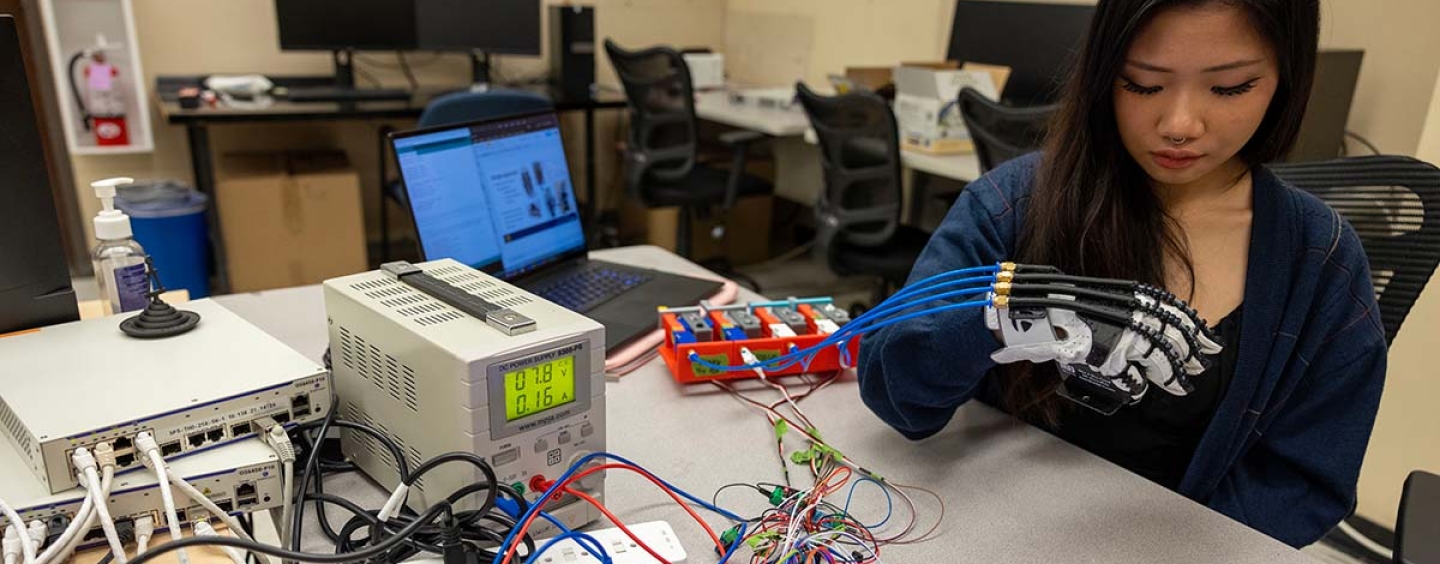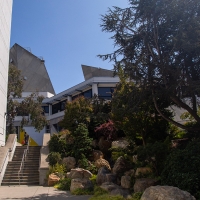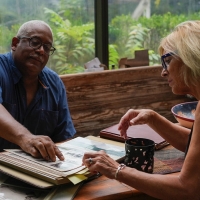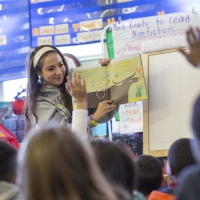New Department of Defense, Energy grants prepare SFSU students for industry jobs

The grants expand research opportunities in engineering, robotics and quantum computing
Technology is constantly evolving, which means industries — and the people who work for them — must change to keep up. San Francisco State University faculty want to make sure their students have the skills and flexibility they need to compete in these growing, ever-shifting fields such as civil, mechanical and computer engineering and quantum computing.
Three new grants — two from the Department of Defense (DOD) and one from the Department of Energy (DOE) — will expand the research capabilities of San Francisco State students and better prepare them to achieve their academic and career goals. The faculty leading these projects are in SF State’s School of Engineering (SOE) and Department of Computer Science.
Structural hazard mitigation research
A $541,541 DOD grant was awarded to SOE Professor Zhaoshuo Jiang, who leads the Intelligent Structural Hazard Mitigation lab. The funds support purchasing two state-of-the-art shake tables (Quanser Corporation’s six-degrees of freedom hexapod motion platforms) and a high-throughput data acquisition system (DAQ). This new equipment will significantly advance the capacity of performing experimental testing with accurate sensing and control, thereby enhancing the institution’s ability to support diverse research areas that are of interest to DOD. The new tables can hold a load of up to 100 kg per platform and shake objects in all three axes, a significant step up from the currently available tables, which only move along a single direction and can accommodate a maximum of 7.5 kg. This means researchers can assess larger prototypes under more realistic conditions. The DAQ system from Crystal Instruments is a high-performance, modular platform designed for real-time dynamic signal analysis, offering flexibility in channel configurations and real-time processing capabilities. The DAQ system will be integrated with the shake tables to assemble a complete instrumentation that supports a wide range of state-of-the-art research and offer unprecedented research capacity in SOE at SF State.
“This new equipment will allow students to gain hands-on experience with common research purpose of characterizing, modeling, and testing various systems,” Jiang said. “By working directly with state-of-the-art technology, our students will develop skills that make them highly competitive and well-prepared for careers in these fields.”
The new instrumentation will be housed in the applied project space in the University’s new Science & Engineering Innovation Center (SEC). Jiang’s collaborators include SOE Professors Cheng Chen and Xiaorong Zhang, Associate Professor David Quintero and Jenna Wong, and Assistant Professor Zhuwei Qin.
Human-machine performance lab
DOD awarded another $409,433 grant to School of Engineering Associate Professor David Quintero to acquire state-of-the-art instrumentation for a human-machine performance lab. The new equipment will include a treadmill, markerless motion capture and human-machine interaction equipment like a robotic leg, hip exoskeleton and rehabilitation robot. Combining these instruments will help establish a research system that integrates humans and machines to enhance human physical and cognitive performance.
Quintero leads SF State’s CARE (Controls for Assistive and Rehabilitation Robotics) lab, which focuses on designing wearable robotic systems that can be viable solutions for movement assistance for people with limited mobility, such as amputees or people with impaired limbs from neuromotor control deficiency. Current projects include an exoskeleton glove to help individuals with limited mobility. For this new interdisciplinary lab space, Quintero is collaborating with School of Engineering Professors Xiaorong Zhang and Zhaoshuo Jiang and Assistant Professors Sanchita Ghose and Alyssa Kubota, and Department of Kinesiology faculty Professor Kate Hamel and Associate Professor Leia Bagesteiro.
“This equipment is an important accomplishment for having SF State students access to get hands-on research practice using such equipment that will allow our students to be competitive in the job market and/or pursue Ph.D. programs,” Quintero explained. “The robotic leg alone has only be at R1 institutions and the company has stated we are the first West Coast region to acquire the robotic leg.”
Quantum computing comes to SFSU
SF State, along with Lawerence Berkeley Laboratory and Argonne National Laboratory, is part of new multi-institutional project funded by the DOE. Associate Professor of Computer Science Wes Bethel and Assistant Professor Daniel Huang were awarded $250,000 as part of the larger five-year grant aiming to bridge the gap between theoretical quantum advantages and practical scientific applications.
Researchers will develop quantum algorithms and quantum machine learning methods applicable across diverse scientific domains. Quantum algorithms might help overcome limitations of classical data encoding such as its high computational expense of time and memory. Unfortunately, these quantum approaches have not yet improved speed. The scientists will therefore focus on efficient quantum data encoding and error mitigation. Their project will study the relationship between scientific data analysis algorithms, data types, quantum data encoding and current quantum hardware. In addition to introducing new research prospects at SF State, this project provides students new opportunities to collaborate with prestigious national labs.
“The grant also results in new opportunities for SFSU students in the form of education and research,” Bethel said. “The SFSU Computer Science Department offers a new course in quantum computing, and the grant provides support for a limited number of students to work as part of the multi-institutional team.”
Learn more about opportunities in SFSU’s School of Engineering and Department of Computer Science.
Tags



